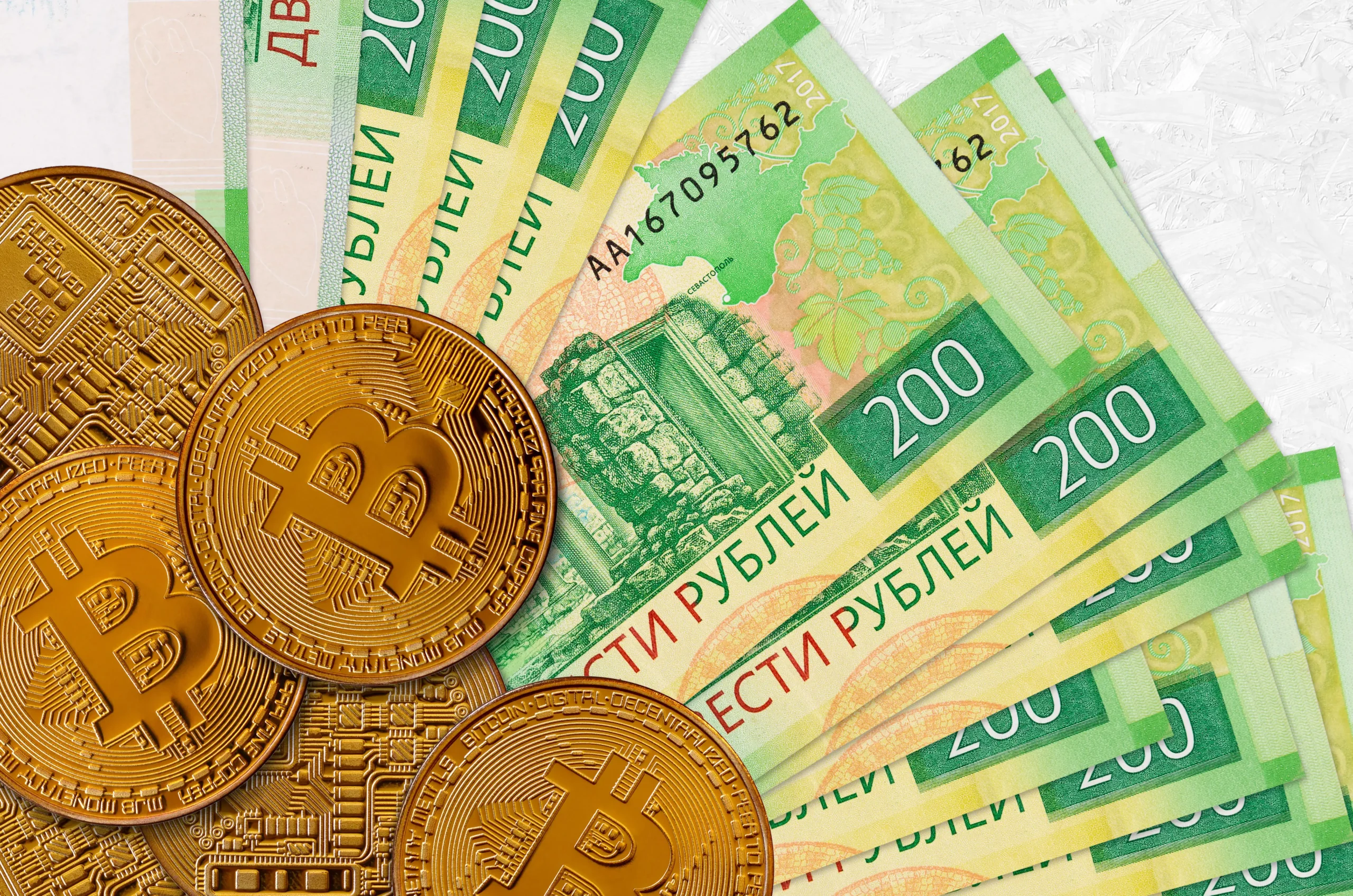In a significant shift in policy, Russia has taken a bold step toward embracing cryptocurrency, a move seen as a way to circumvent tightening Western sanctions. The recent passage of a bill by Russia’s State Duma marks a turning point, allowing businesses to use cryptocurrencies for international trade. This legislative change also sets the stage for the introduction of a digital ruble, expected to roll out next July. This shift in Russia’s stance on digital assets highlights a broader strategy to maintain its international trade flow amidst increasing financial restrictions.
Russia’s Crypto Legislation and Digital Ruble Plan
On Tuesday, the lower house of Russia’s federal assembly, the State Duma, passed a bill permitting the use of cryptocurrencies in international trade. This move, reported by Reuters, indicates a significant policy reversal from Russia’s previous stance against cryptocurrencies. The new law empowers Russia’s central bank to establish an “experimental” payments platform, with the first transactions anticipated by the end of this year.
According to a report by TASS, Elvira Nabiullina, the governor of the Russian central bank, announced plans for a widespread introduction of the digital ruble by July next year. Digital currencies like the digital ruble, while similar to cryptocurrencies, differ in that they are issued and backed by central banks, providing a state-controlled alternative to decentralized cryptocurrencies.
In tandem with these developments, Russia has also enacted new regulations to legalize crypto mining, further embedding digital assets within its economic framework. Despite maintaining a domestic ban on crypto payments, Moscow’s new legislation permitting the use of cryptocurrency for international transactions marks a pivotal shift in its economic policy.
The Road to Crypto Adoption
This policy shift comes after Russia’s central bank proposed a ban on the use and mining of cryptocurrencies in January 2022, citing potential risks to financial stability and monetary policy. However, the landscape changed dramatically following the imposition of sweeping sanctions in response to Russia’s invasion of Ukraine.
These sanctions have increasingly isolated Russia from global financial systems, prompting a reassessment of digital assets as viable alternatives for international payments. As reported by Bloomberg, some Russian businesses have already begun using cryptocurrencies to facilitate trade, often through intermediaries in central Asia and settlements in Hong Kong.
President Putin’s Strategic Vision
Earlier this month, Russian President Vladimir Putin highlighted the necessity of establishing a legal framework for digital assets, as reported by the Kremlin and TASS. He emphasized the urgency for Russia to “seize the moment” in light of the growing use of digital assets for international settlements. This sentiment underscores a broader strategic vision to leverage digital currencies as a means to bypass sanctions and stabilize international trade.
The Global Context and Challenges Ahead
Russia’s pivot toward crypto and digital currencies aligns with broader trends observed by analysts, who have long speculated that Russia would eventually adopt such measures to mitigate the impact of sanctions. Historically, Russian companies have navigated sanctions by using non-US dollar currencies, such as the Chinese yuan, or by engaging with smaller banks. However, the intensification of sanctions has made even these alternatives increasingly untenable.
In December, the US introduced secondary sanctions targeting financial institutions that assist Russia in evading sanctions. This development has led to a significant reduction in transactions with Russia by global banks, even those outside the US dollar sphere, including institutions from China, the UAE, Turkey, and Austria.
Christopher Granville, managing director of global political research at GlobalData TS Lombard, noted the significant influence of the US Treasury in this context. He pointed out that merely settling commercial invoices in national currencies does not suffice to counter US sanctions, highlighting the global reach and power of the US financial system.
Further compounding Russia’s financial challenges, last month’s expansion of US sanctions forced the Moscow Exchange to halt trading in dollars and euros, highlighting the severe restrictions faced by Russia in accessing global markets.
The Road Ahead for Russia’s Digital Currency Strategy
The implementation of Russia’s new crypto and digital currency policies is not without challenges. China, where the world’s most advanced digital currencies are, has adopted a “two-tier” system involving banks as wallet-holding agents to avoid disrupting the broader financial system. This model, as Granville suggested, helps maintain financial stability while integrating digital currencies.
As Russia moves forward with its plans, the effectiveness and resilience of its new digital currency regimes remain to be seen. The country faces the complex task of balancing innovation with stability, all while navigating a challenging international economic environment.
In summary, Russia’s embrace of cryptocurrency and the digital ruble marks a notable shift in its economic strategy. This move, driven by the need to circumvent stringent international sanctions, reflects a broader trend towards the adoption of digital currencies in global finance. However, the success of this strategy will depend on the careful implementation and management of these new systems amidst a complex geopolitical landscape.










Leave a Reply